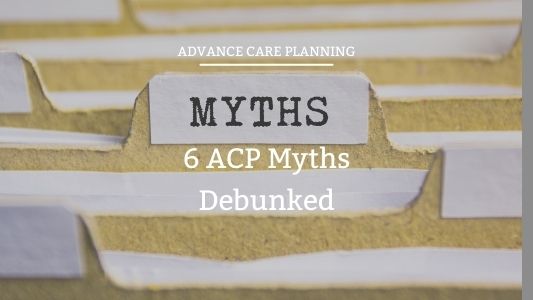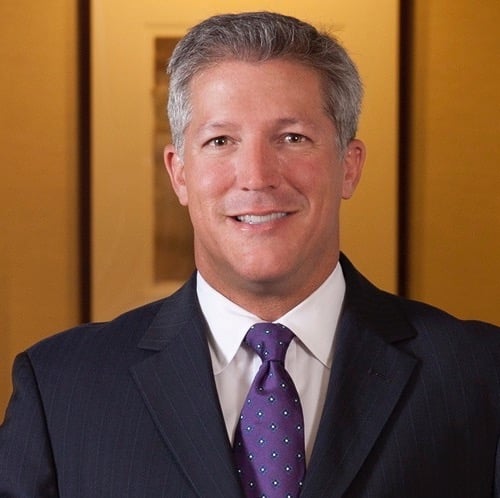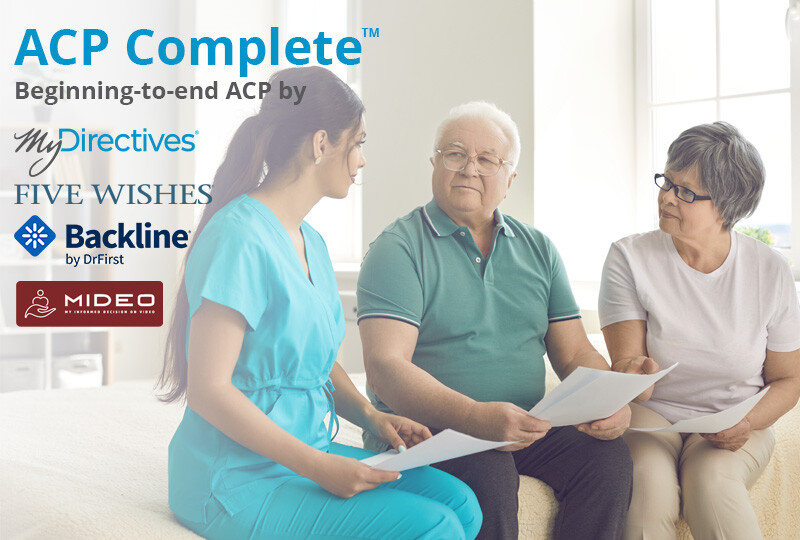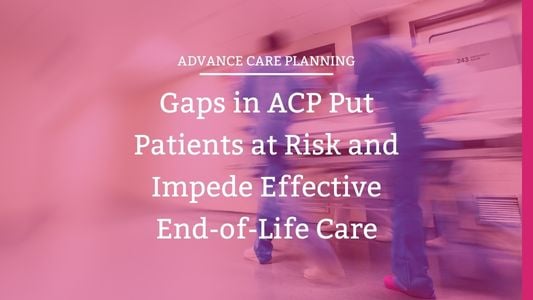
It’s Time to Dispel Misconceptions Concerning ACP Documents So Patients’ Voices Can be Heard.
The COVID-19 pandemic reminded us that a medical crisis can occur at any time to people of any age. As the nation’s leaders in digital advance care planning (ACP), we’re encouraging all adult Americans to develop an ACP document such as an advance directive or an advance care plan as a way to be certain their wishes will be heard if they are unable to speak for themselves.
“Having an advance care planning document in place and easily accessible makes it possible for the patient’s voice to be considered in clinical decision-making and increases the likelihood that the care delivered will align with his or her values and priorities,” says ADVault CEO Scott Brown. “Unfortunately, existing misconceptions prevent many Americans from creating their own ACP documents. It’s time to start putting these to rest.”
Among the most common mistaken beliefs about Advance Care Planning, are these six:
ACP Myth 1: I don’t need an advance care plan if I am young and in good health.
Reality: ACP documents aren’t only for seniors who have a terminal illness or a debilitating disease. Nobody can predict the future, and emergencies can happen at any time, potentially leaving you too injured or ill to communicate medical treatment decisions. Everyone needs to have a plan in place reflecting their personal wishes and to discuss it with their family and physician.
ACP Myth 2: ACP documents are only important for people who don’t want aggressive life-sustaining measures.
Reality: ACP documents provide an opportunity for a person to say he or she doesn’t want CPR, ventilator use, artificial nutrition (tube feeding), or artificial hydration (IV, or intravenous fluids), or to say “yes, I do want heroic measures used.” They allow people to weigh days of life vs. quality of life and clarify what makes life meaningful to them. They let individuals specify where they want to receive treatment – at home, or in a nursing home or hospital, for example. And they provide the opportunity to share wishes with advocates and medical teams who make treatment decisions.
ACP Myth 3: Once written, an ACP document can never be changed.
Reality: Medical treatment goals and preferences often change as people face new family experiences, or as they age and their health evolves. An ACP document is a living document a person can change at any time, and technology makes it particularly easy to do so.
ACP Myth 4: ACP documents aren’t necessary because a family member or friend can tell doctors what I want.
Reality: At a time of emergency, a family member or friend may not be there. Even if they are, data suggests that emotionally stressed surrogates do not consistently make decisions accurately reflecting patient wishes. Inconsistent state laws on default surrogate decision-makers further complicate the issue. An ACP document can remove the guesswork and provide patients peace of mind by knowing that their own voice – not the “voice” of a hospital, employer, health plan, or any government – will be heard and considered.
ACP Myth 5: ACPs are routinely disregarded by family members and medical teams.
Reality: A Kaiser Permanente study appearing in the April 2021 issue of JAMA revealed that patients who informed loved ones and healthcare providers of their end-of-life wishes had their goals carried out 90 percent of the time. ACP documents benefit all stakeholders in healthcare. For family members and caregivers, they help to clarify what the patient wants and doesn’t want so better decisions can be made. ACP conversations resulting in high-quality ACP documents also positively impact medical team morale and decrease unnecessary and unwanted hospitalizations and medical interventions.
ACP Myth 6: My ACP is best kept in a safe deposit box with a paper copy given to my doctor and loved ones.
Reality: Committing wishes to paper is great, but ACP documents that are difficult to access in time of need are meaningless. In addition to keeping a copy, people should make their ACP documents electronically, securely, and seamlessly available to hospitals and doctors across the continuum of care. They can do this by going to mydirectives.com, a free service that guides them through the process of creating an advance care plan or uploading an ACP document they already have. MyDirectives securely stores ACP documents and portable medical orders like DNR orders and POLST forms, then makes them available to healthcare providers 24 hours a day, 7 days a week, every day of the year.
“Even if you’re in good health, planning for the future is an important step toward indicating the medical treatments and interventions you would or wouldn’t want in an emergency,” says Brown. “Do you want to be hospitalized or treated where you are? Who makes decisions for you? Who doesn’t? By electronically documenting your medical treatment preferences, organ donation status and other critical information, you can greatly increase the likelihood that your voice will be heard.”
Learn more about ACP Myths from the ABA.
Let’s get started on digital ACP together
Secure, Interoperable, Accessible.
MyDirectives offers the only digital advance care planning (ACP) tools and interoperable cloud-based storage that is HITRUST Risk-Based 2-year Certified.







